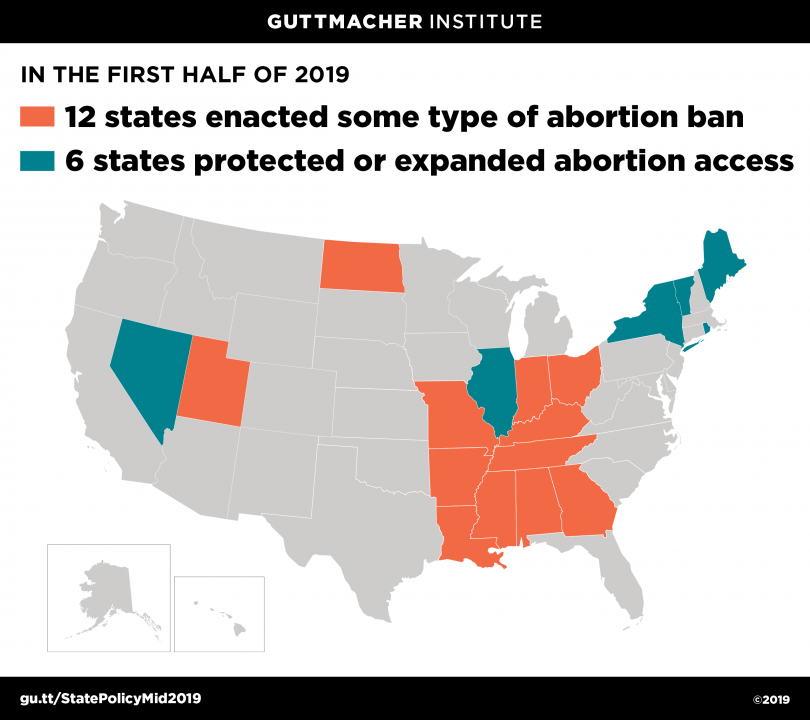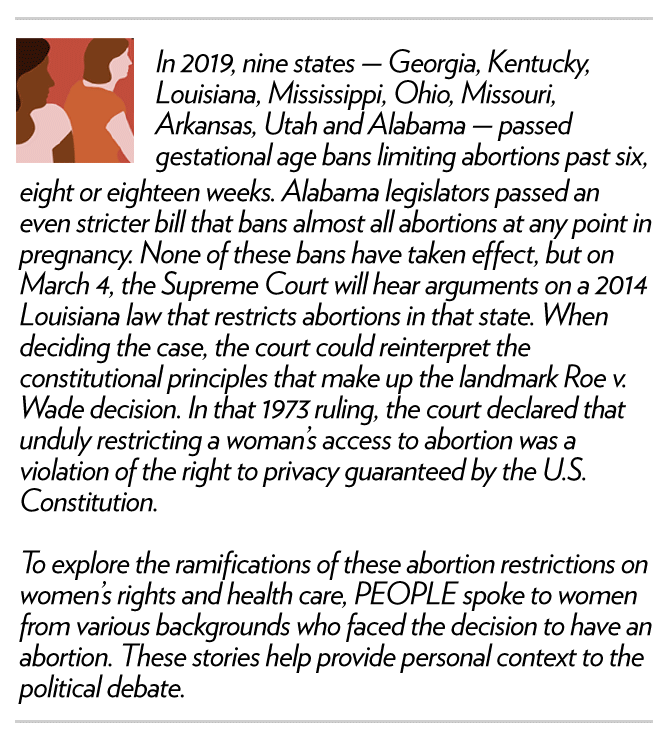I'm an Orthodox Jewish Woman Who Had an Abortion with the Blessing of My Rabbi
My husband and I want to have a big family, and I was having a very wanted pregnancy right after a miscarriage. I was 31 weeks along in November of 2016, and one night started feeling irregular movements. We went to the doctor, who sent us to the hospital. These were doctors at the top of their game who we really trusted; I’ve known them for years.
I had countless tests that day and countless scans and learned the baby was having intracranial hemorrhaging and seizures. The doctors didn’t know if the baby could survive to the end of my pregnancy. I didn’t want the baby suffering. My mommy instinct went into overdrive. I just wanted to end that suffering.
Even if I were able to carry the baby to term, it would need serious medical help to survive — which raised another question: what interventions would be compatible with my religious beliefs?
My husband and I called a very prominent Orthodox rabbi who consulted with our doctors that day, and with other rabbinic authorities who decide issues of abortion on a case by case basis.
It was my rabbi that made the determination that the most appropriate thing to do was not carry the fetus to full term but have an abortion. He also said we should not learn the gender, not see the fetus, and not be involved with the burial process. That would be taken care of to help us with our grief.
I was sent home from the hospital that night and I felt a sense of relief. The decision was made for us. We are an Orthodox couple following Jewish law, and our rabbi, with the help of our medical team, made the appropriate decision.
We live in New York, where, at the time, abortions were illegal after 24 weeks. It was very hard to find a provider out of state, but we found a doctor in Colorado. I remember on the plane ride being very pregnant and feeling so completely vulnerable.

The clinic was not like we were used to in New York. It was not as comfortable as my hospital in New York, and it was devastating not being with my doctors and our medical team. I was taken down to a basement and my husband was not allowed to be with me. A doctor gave me an injection to “induce fetal demise” as they call it. The two-second treatment cost $10 thousand and we put it on our AmEx.
We consider ourselves very grateful that we have financial means, we have family support, I had childcare. We feel very grateful that we could book a flight and book accommodations.
We went back to the airport and flew to New York. Having to travel to get this done was the most difficult part. I can’t imagine anyone electing to travel pregnant, and return carrying a dead fetus on the airplane. This was a religious and medical necessity. I went to the hospital and was induced, I was in labor and three days later I delivered.
We couldn’t have predicted this would happen. The week before, the fetus was completely normal, then something went terribly wrong. The medical team at our hospital even did an autopsy to figure out what went wrong and they could not figure it out. As far as we know there are no answers.
I think an important point is, third trimester abortions are not a luxury. In our situation, we had the abortion. It was medically indicated and medically approved and we went to our rabbi and got religious instructions on what to do and I followed them.
I feel conflicted sharing my story. I’m aware of how political abortion is, how divisive the issue is. I am aware I have plenty of friends who understand and I am aware I have plenty of friends who don’t understand.
Fertility and having children is such a blessing in Orthodox Judaism. There is such a focus on family life, and not carrying another child into this world carries with it a tremendous amount of guilt. To terminate a pregnancy feels so wrong, it carries a great deal of guilt and shame.
I’ve shared my experience more, with other women and our senator, because we supported RHA — a New York State law passed in January, 2019, allowing abortions after 24 weeks in cases where there is an absence of fetal viability, or the abortion is necessary to protect the patient’s life or health.
We look at it as a religious right, and a right to healthcare.
As told to Diane Herbst


 Yahoo Movies
Yahoo Movies 
